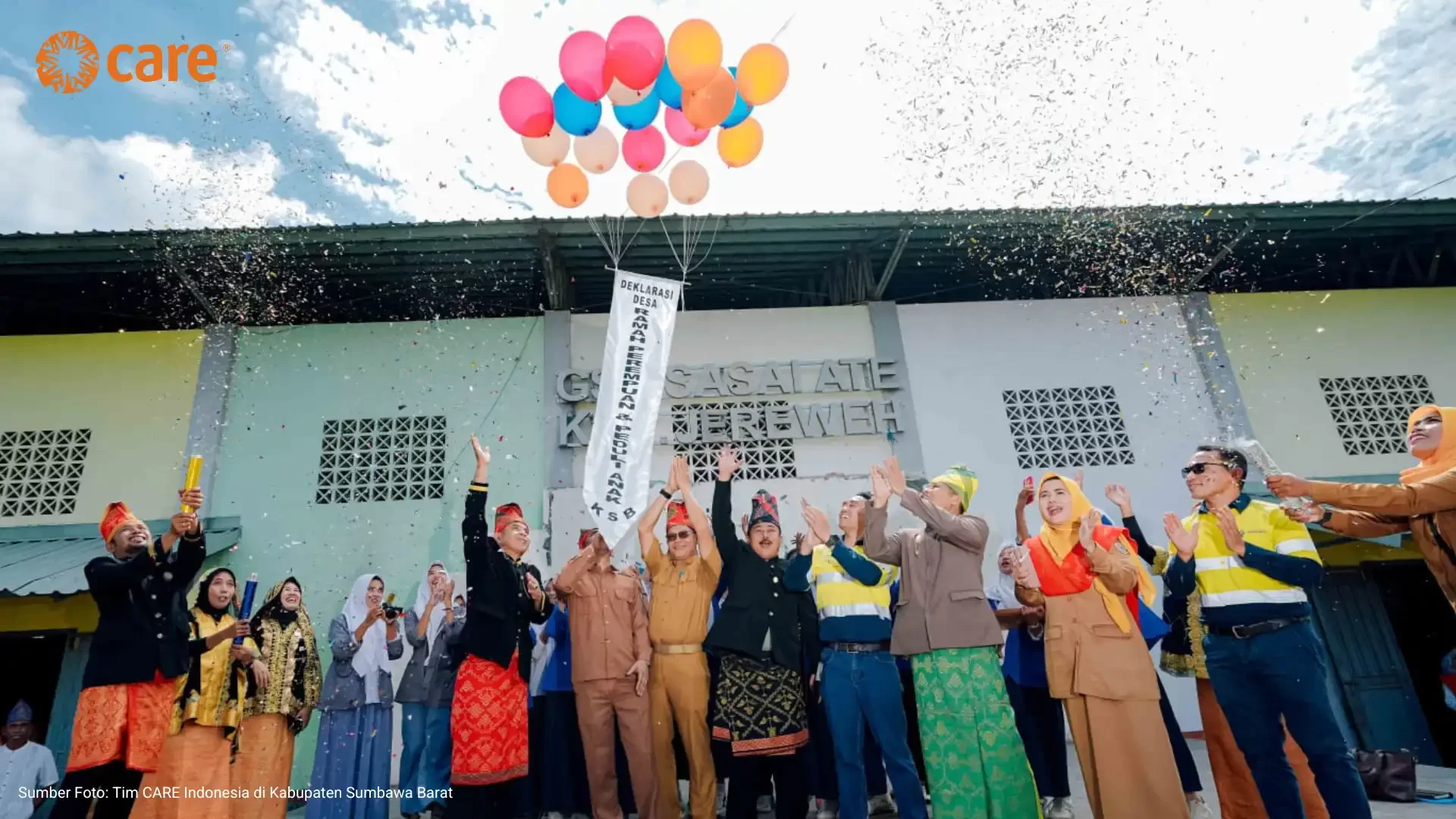Gender Equality Education for Female Tea Plantation Workers
FAO data in 2022 indicated that Indonesia is the 7th largest tea producer in the world. The largest tea plantation area is located in West Java, accounting for 88 percent, as reported by the Central Statistics Agency (Badan Pusat Statistik) in 2020. The majority of tea plantation workers are women, particularly as tea pickers. Women’s representation in management within tea plantations is still limited, and there is identified discrimination in workers’ earnings, where male workers receive higher wages for the same job. This highlights the existing gender inequality, as reported in the THIRST Journal in 2020.
“Management has provided opportunities for female workers to hold positions as supervisors and managers. However, female workers still feel less confident about competing with their male counterparts. We hope through this Women’s Empowerment Program in the Tea Community, in collaboration with Yayasan CARE Peduli, will instil confidence and enhance the capacities of female workers, enabling them to compete more effectively,” Heru Supriadi, Manager of the Malabar Plantation Unit PTTPN 1 Region 2 stated during his opening remarks at the Gender Equality and Gender-Based Violence Workshop on January 23rd at the Pasirmalang Plantation in Margaluyu Village, Pangalengan District, West Java.
The training conducted in two villages, namely Margaluyu Village and Banjarsari Village, focuses on introducing the concepts of gender and gender-based violence. According to kekerasan.kemenppa.go.id, there have been 1,124 reported cases of violence in Indonesia since January 1, 2024. West Java is among the provinces with the highest recorded cases, with total of 106 cases. Women and children are victims of the recorded acts of violence in West Java.
Kanny Destana, the wife of the Banjarsari Village Head, who attended the training on behalf of the Village apparatus, conveyed that both women and men have equal vulnerability to becoming victims of violence, including gender-based violence. “Knowledge about violence, its impacts, and efforts for prevention and handling should be widely and consistently disseminated to create violence-free environment. Banjarsari Village, which already has an Indonesian Women’s Commission (Komisi Perempuan Indonesia or KPI) unit, can serve as a platform for preventing and addressing acts of violence, especially gender-based violence,” said Kanny, who also serves as a teacher at the local vocational school.
More than 44 participants from Margaluyu Village and Banjarsari Village were enthusiast in participating in the training. The attendees included not only female tea pickers but also male workers, women’s plantation organizations, and representatives from plantation workers’ unions who joined the training sessions. Acep, the Chairman of the Plantation Workers’ Union at Pasirmalang, appreciated the training’s inclusivity of male participants and emphasized the importance of men’s roles in achieving gender equality and justice. According to Acep, the training provided him with new insights, highlighting the significance of preventing gender-based violence, including efforts to prevent child marriages. “If men have a good understanding and actively support, gender equality can be implemented anywhere,” he said.
The empowerment for female tea pickers in West Java are undertaken by Yayasan CARE Peduli (YCP), including gender training as part of the Tea Community Women’s Empowerment Program. Agus Tri Wahyuono, YCP Program Manager, explains that the program’s implementation focuses not only on strengthening gender equality in the workplace and communities but also on enhancing leadership skills, particularly for female workers. He further explained that the program aims to strengthen the local economy and community readiness around tea plantations regarding access to health, nutrition fulfilment, and clean water. “This activity marks the initial step in a three-year program across three villages. The hope is that if this program series can enhance the empowerment of female workers in tea plantations in West Java, it can be replicated in other industries in different locations in the future,” Agus concluded.

Penulis: Swiny Adestika





